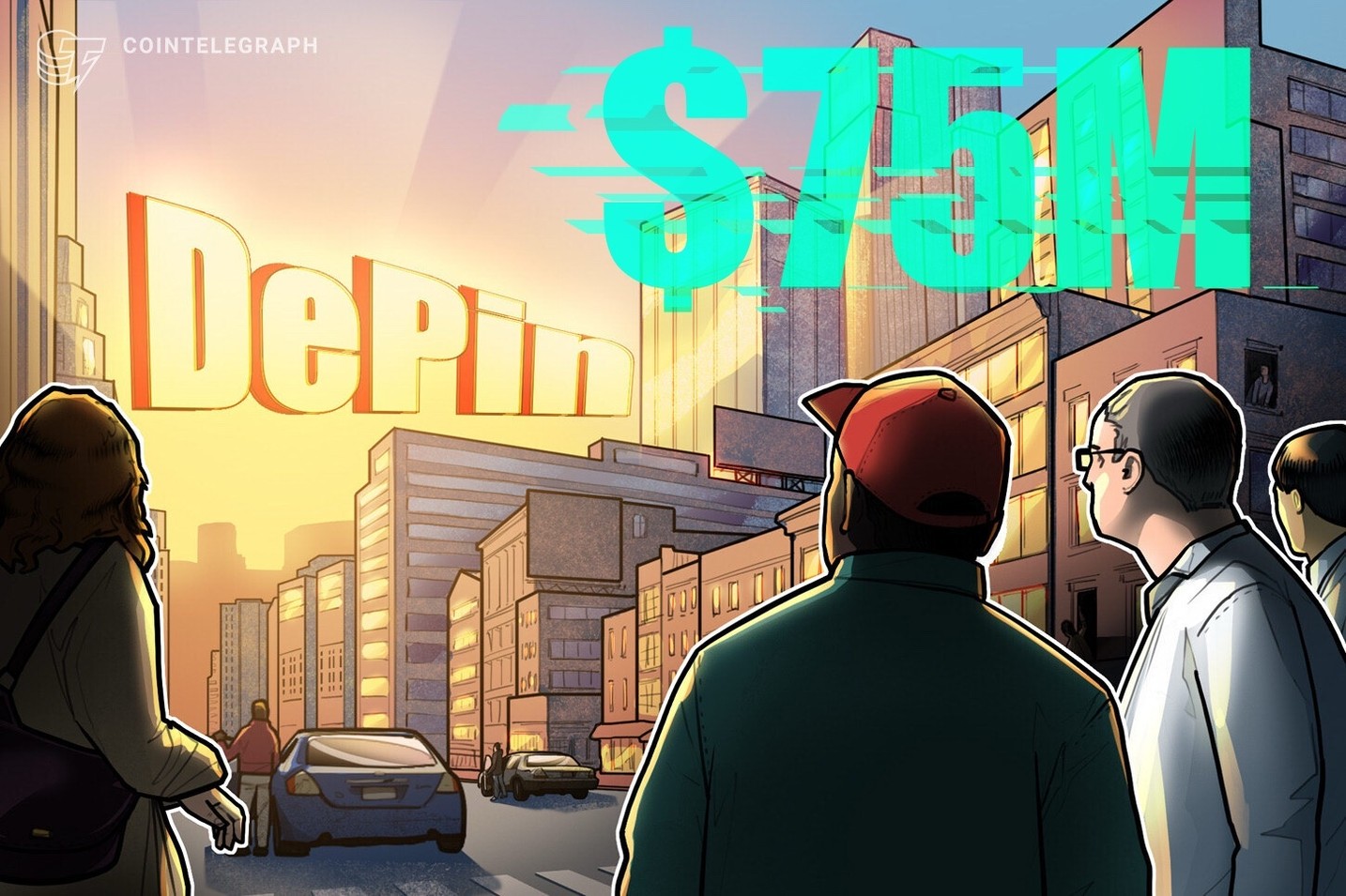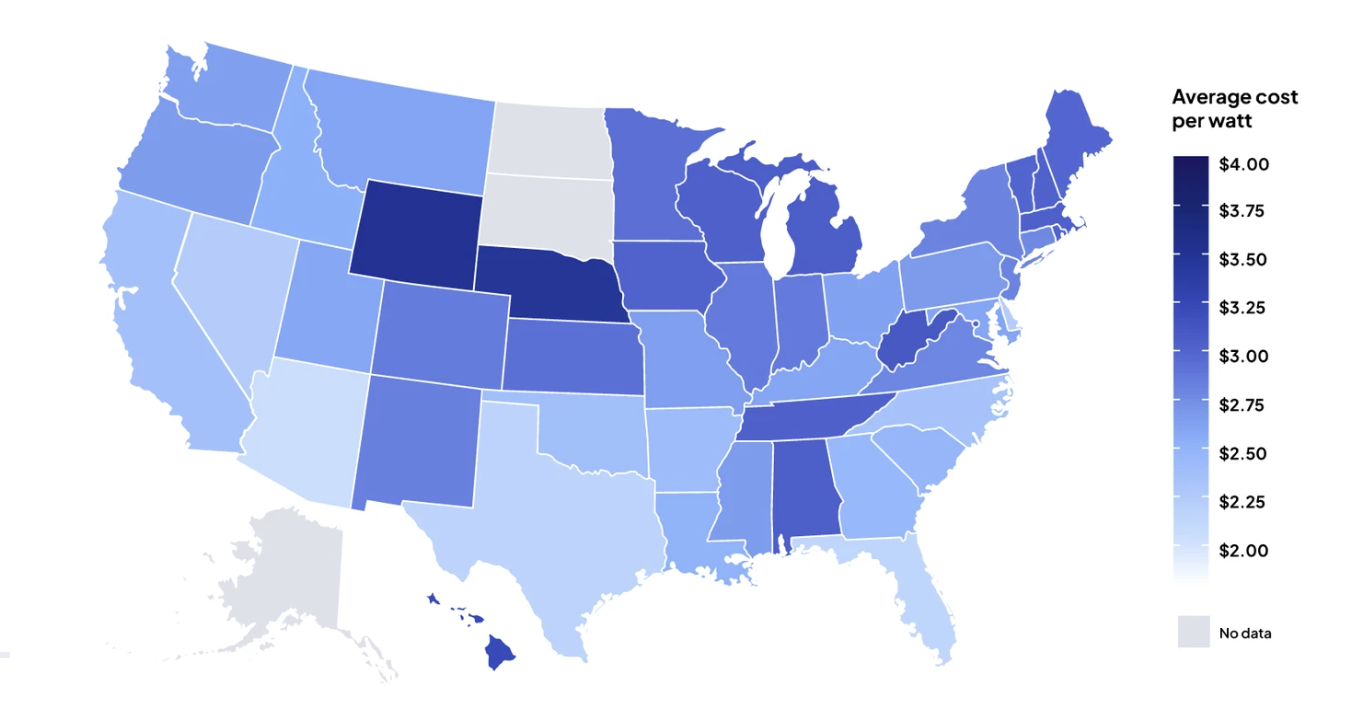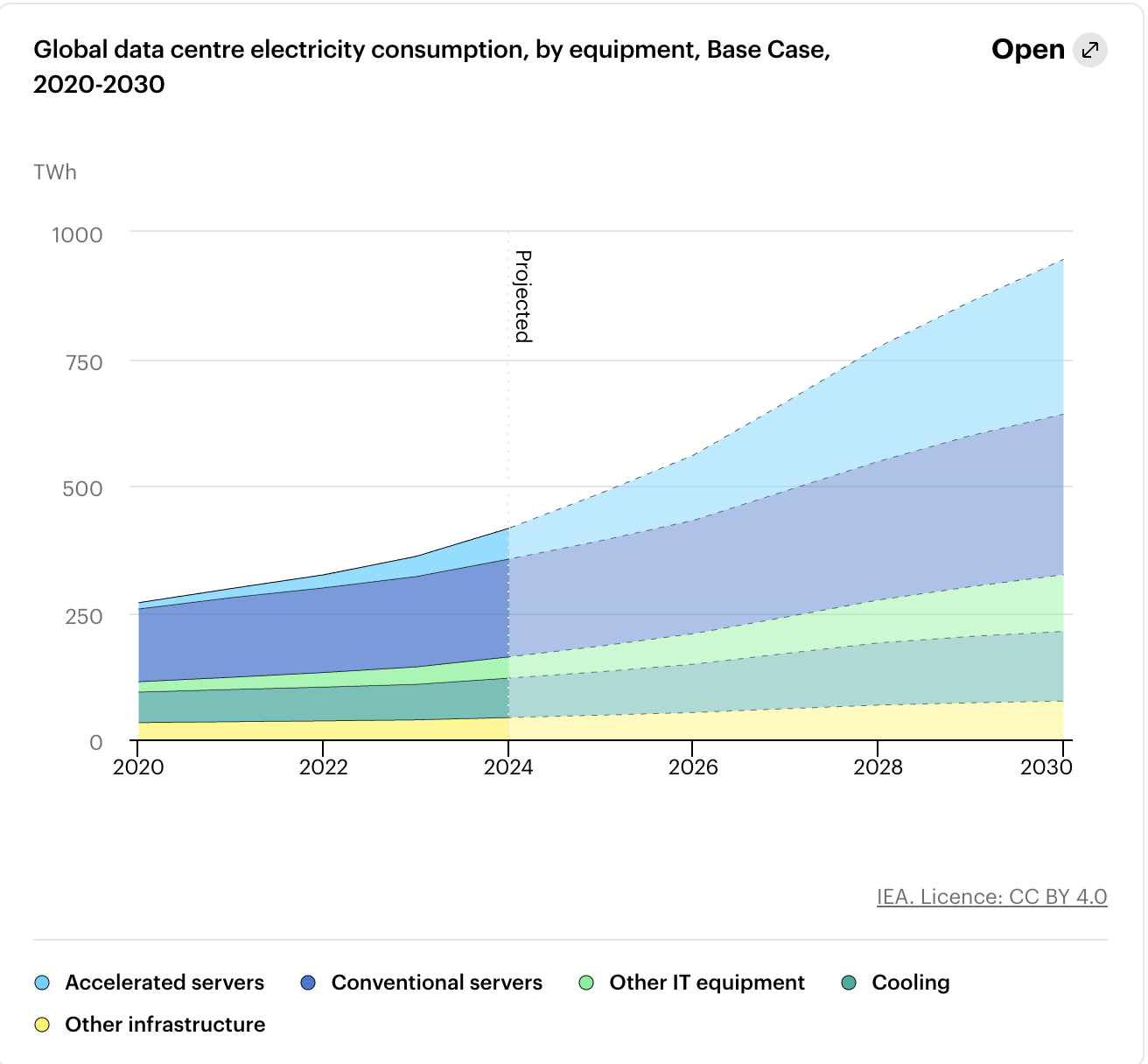
Daylight, a decentralized physical infrastructure network (DePIN) initiative dedicated to establishing a distributed solar energy grid, has successfully acquired $75 million in funding aimed at enhancing its solar energy service coverage across the United States.
The project offers solar energy subscription services to its consumers, thus alleviating the substantial initial expenses related to buying and installing solar panels and batteries, which can exceed $30,000. Its testnet went live in 2024.
Revenue is generated through the subscription service while also allowing customers to contribute excess energy back into the power grid. Participants in this system can earn “sun points” as a reward, which may be convertible to a future token.
Prominent investment firms involved in this funding round include Framework Ventures, a16z Crypto, Lerer Hippeau, M13, Room40 Ventures, EV3, and Turtle Hill Capital.
 Average cost of solar per kilowatt hour for each state in the United States.
Source: EnergySage
Average cost of solar per kilowatt hour for each state in the United States.
Source: EnergySage
DePINs demonstrate how decentralized technologies can provide tangible use cases by aligning the interests of customers with business operations to create durable, community-driven infrastructures that rival traditional systems.
The Rising Demands of the Energy Grid
The current energy grid is struggling to keep up with the energy requirements of high-performance computing and artificial intelligence (AI) data centers. This increasing demand potentially threatens to raise consumer electricity prices. According to Bloomberg, wholesale energy rates near these facilities have soared by 267% since 2020.
AI development, along with the centralized data centers supporting its functionality, could potentially instigate a global energy crisis, noted Greg Osuri, founder of Akash Network, which serves as an open-source platform for buying and selling computational power.
 Energy demand for AI data centers is projected to continue surging throughout 2030.
Source: IEA
Energy demand for AI data centers is projected to continue surging throughout 2030.
Source: IEA
The proposed solution to these challenges is decentralizing the data center business by sourcing computing power from a variety of distributed outlets, including personal computers and industrial-grade systems.
“Once incentives are figured out, this model will explode just like mining did,” stated Osuri.
Major tech organizations such as Google, Amazon, Meta, and Microsoft are currently investigating alternative energy sources to empower their AI data centers while minimizing their reliance on traditional electrical grids.
In June, Amazon secured a contract with Talen Energy for 1,920 megawatts of nuclear energy to support its AI data centers and service operations in Pennsylvania.


